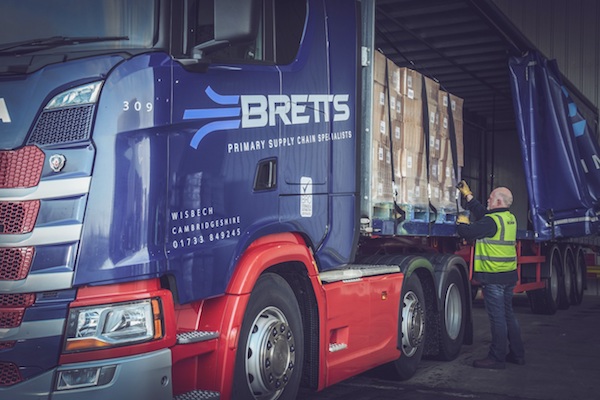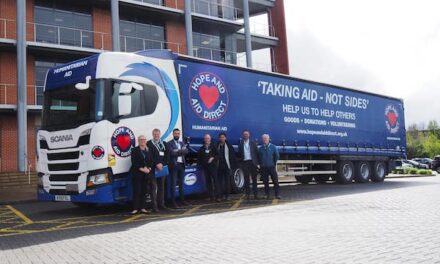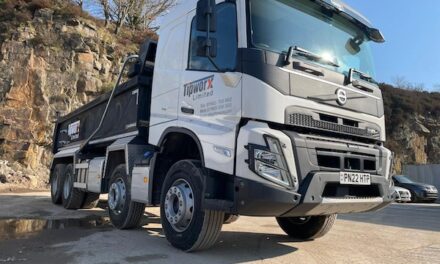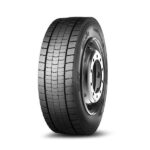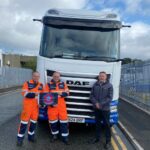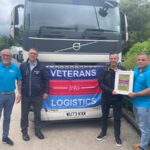In recent years, the logistics industry has witnessed a significant influx of IT solutions enter the marketplace.
The industry’s rapid adoption of such technology has undoubtedly propelled it into the 21st Century, enabling operators to remove the complexities associated with outdated or inefficient manual processes at a click of a button.
However, Wayne Minney Transport General Manager at Bretts Transport believes that the implementation of these solutions should not lead hauliers to veer so adamantly away from its initial roots, cautioning that relying solely on technological solutions without nurturing a workforce equipped with the skills to interpret and leverage these innovations effectively could halt the long-term growth of businesses within the sector.
Suggesting that operators might be falling into the all-too-easy trap of using these innovations in isolation, rather than integrating them into a more holistic strategy that combines human insight and the efficiency and precision of modern technology, Wayne has stressed that IT systems should seek to complement, rather than replace, the judgment and deep understanding that seasoned professionals still bring to the table.
Wayne explains: “IT solutions such as TMS technology have rightly so been met with a positive reception across the industry as they’ve essentially revolutionised transportation as we know it by simplifying the entire logistics operation, whether that be in consolidation, tracking, route optimisation or in the planning process.
“While these advancements are undoubtedly a welcome addition, there has been a growing trend since their widespread adoption which has rung alarm bells – overdependence. This unfortunately has the potential to lead to complacency and a failure to address issues that fundamentally require human judgement, whether that be accounting for variables such as drivers calling in sick or last-minute changes to customer requirements.
“Hauliers ultimately have often been persuaded, or feel pressured, to implement these solutions without fully understanding how best to integrate them effectively within their own operations. As a result, many fail to realise the true benefits these technologies can offer, and instead just settle for generic improvements.”
With the haulage industry actively looking for solutions to accelerate the complex task of decarbonisation, Wayne Minney goes on to say that technology can only get the industry so far in cutting emissions, and in order to fully leverage their capabilities in assisting hauliers on this journey, they need to first establish individual sustainability goals and look at areas where these tools can make the greatest impact.
Bretts Transport this year has done just that by rolling out an innovative new modelling strategy which has been initially built upon streamlining its consolidation process, increasing the quantity of pallets delivered to each destination, and in turn reducing unnecessary deliveries and cutting overall mileage.
Having already seen an emission reduction of six per cent, Bretts is confident that following the first 12 months, the company will see a further cuts.
“While these tools can undoubtedly reduce fuel consumption and mileage, their intrinsic flaw lies in the fact that they may not consider specific operational variables which a human touch can easily respond to, Wayne continued. From our own analysis conducted over the past year, we have taken the time to truly understand the extent to which the model can make inroads in further reducing the business’ carbon footprint, as well as observe how it will react to market changes, and forecast future trends.
“This approach has already paid significant benefits for our business, not only on a cost element but also in minimising our carbon footprint. Therefore, rather than turn immediately to such tools to generate reductions, hauliers need to first step back and analyse where reductions can be made that works for their business. Relying solely on technology just isn’t the answer, as it’ll often just provide generic results that overlooks unique nuances that effect individual businesses on a day-to-day basis.
“By maintaining a human connection and choosing the right solutions tailored to their business’ needs, hauliers can achieve deeper, more meaningful reductions that can act as a building block to drive their sustainability plans forward, rather than merely acting as a tick box exercise.”

